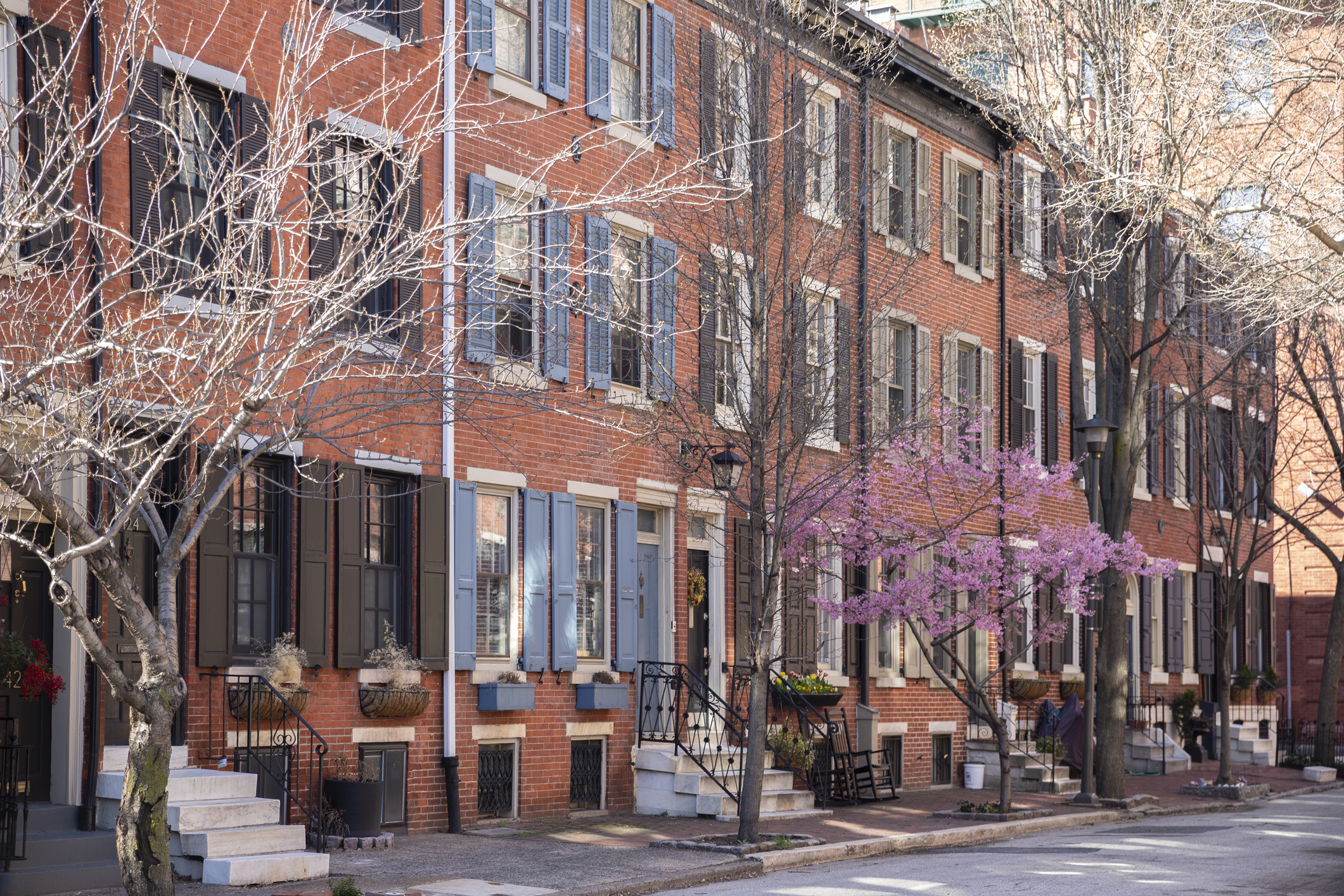
Philadelphia law helps vulnerable homeowners retain intergenerational equity.
Cheryle is 74 years old and lives in a rowhome on a narrow block in West Philadelphia. In recent years, home values in her neighborhood, like in most of Philadelphia, have risen dramatically. She and her neighbors are regularly approached by people who plaster illegal “we buy houses” signs on telephone poles around the city and bombard longtime residents with calls, texts, and mailings offering quick cash deals for their homes.
Thinking she might want to move to a one-story home because of a recent hip injury, Cheryle answered one of these calls. To Cheryle, the buyer seemed friendly. He told her that he could buy her house—no realtor needed—and could make the move smooth and easy.
The buyer came to her home, where Cheryle signed a sale agreement that provided for a closing date and a sale price at least $20,000 below market value. Cheryle, who lives alone, was not given the option to review the contract with her family or think about the deal. When her family found the contract days later, they grew concerned that Cheryle had not made a fully informed decision.
Cheryle is one of a growing number of homeowners who are pressured into signing their homes over to real estate buyers who target seniors, limited English speakers, inheritors, and those at risk of tax or mortgage foreclosure to convince them to sell their homes for well below market value.
Homeownership rates in Philadelphia have been declining for over a decade. This makes what some advocates call “predatory home buying” an especially painful problem in Philadelphia: It leaves homeowners like Cheryle unlikely to afford another home with the cash they receive from a sale.
In a predatory home buying scheme, wholesalers often operate by selling their sale agreements to third parties for a higher price; the eventual buyer still gets a property for well under market value and the wholesaler walks away with the difference—often thousands or even tens of thousands of dollars. That money represents equity built up by the homeowner and their family over years, and often decades. Because these wholesalers are not registered real estate agents, realtors, or attorneys, they are not bound by any ethical obligations or professional conduct rules. Wholesalers are free to say misleading or untrue things to capitalize on vulnerable homeowners and transfer their equity into their own bank accounts.
For lower-income families and families of color, those dollars in equity are hard-won, due to this country’s long history of redlining, predatory lending, and continued discriminatory lending systems. Homeowners who have managed to purchase and keep homes over generations have overcome extraordinary obstacles. When heirs are targeted to get quick cash, they lose out on the benefit of having wealth passed down over generations. Moreover, homeownership represents a bigger share of family wealth for Black families when compared to white families, so every dollar a wholesaler walks away with in profit further increases the nation’s racial wealth gap.
In Philadelphia and elsewhere, the share of homes purchased by investors is growing fast. This means that instead of owner-occupied homes with longtime residents, more homes sit vacant until the market value rises enough to turn a profit or are rented out to tenants by anonymous corporate landlords. And because tenants fare worse when their landlords are corporations or investors, community harm is amplified when families lose their longtime homes to faceless companies.
Last year, Philadelphia passed legislation, the first of its kind in the country, aimed at curbing the worst abuses among residential property wholesalers. The new city law includes several important elements designed to protect homeowners:
First, the law provides for the creation of a “do not solicit list,” so that homeowners and their families can put wholesalers on notice that they do not want to be contacted. Wholesalers that ignore the list face fines.
Second, wholesalers must obtain a license to operate in the city and follow a simple but important set of ethical guidelines and provide information about investors’ identities. Homeowners who sign agreements of sale with unlicensed wholesalers can now cancel their contracts at any time before closing.
Finally, wholesalers must provide homeowners with a seller’s bill of rights at least three days before an agreement of sale is signed. This document provides homeowners with important information about city programs designed to keep people in their homes, including tax relief and repair assistance. The document also encourages homeowners to do independent research about their home’s potential market value.
Homeowners are already benefitting from the new legislation:The do not solicit list is operational and homeowners can sign up to stop persistent and aggressive calls, postcards, texts, and visits from wholesalers. In addition, because the wholesaler offering to buy Cheryle’s home was unlicensed, Cheryle was able to walk away from the sale agreement without fear of legal action. Should she eventually decide to sell her home, she now stands a greater chance of walking away with a fair price, ensuring that she and her family see their equity realized.
To be sure, preserving intergenerational wealth and protecting vulnerable residents from scams requires more than just one law. But by ensuring that homeowners are not tricked into giving away their wealth with the stroke of a pen, Philadelphia has taken an important step toward supporting homeowners like Cheryle.




